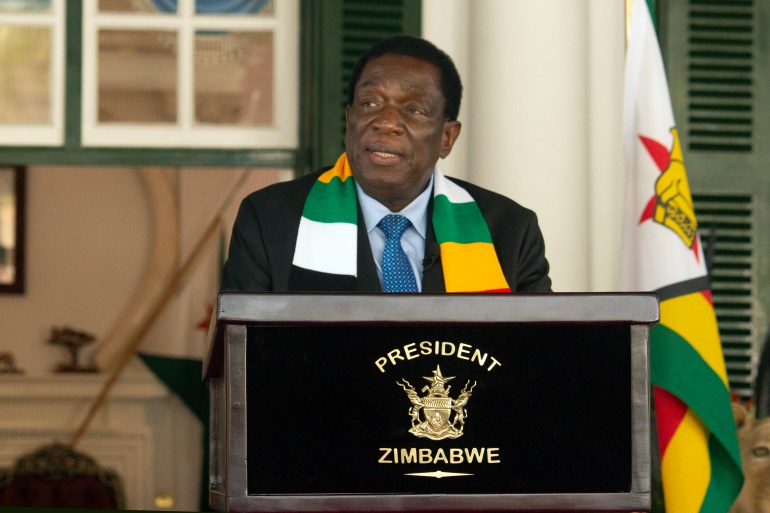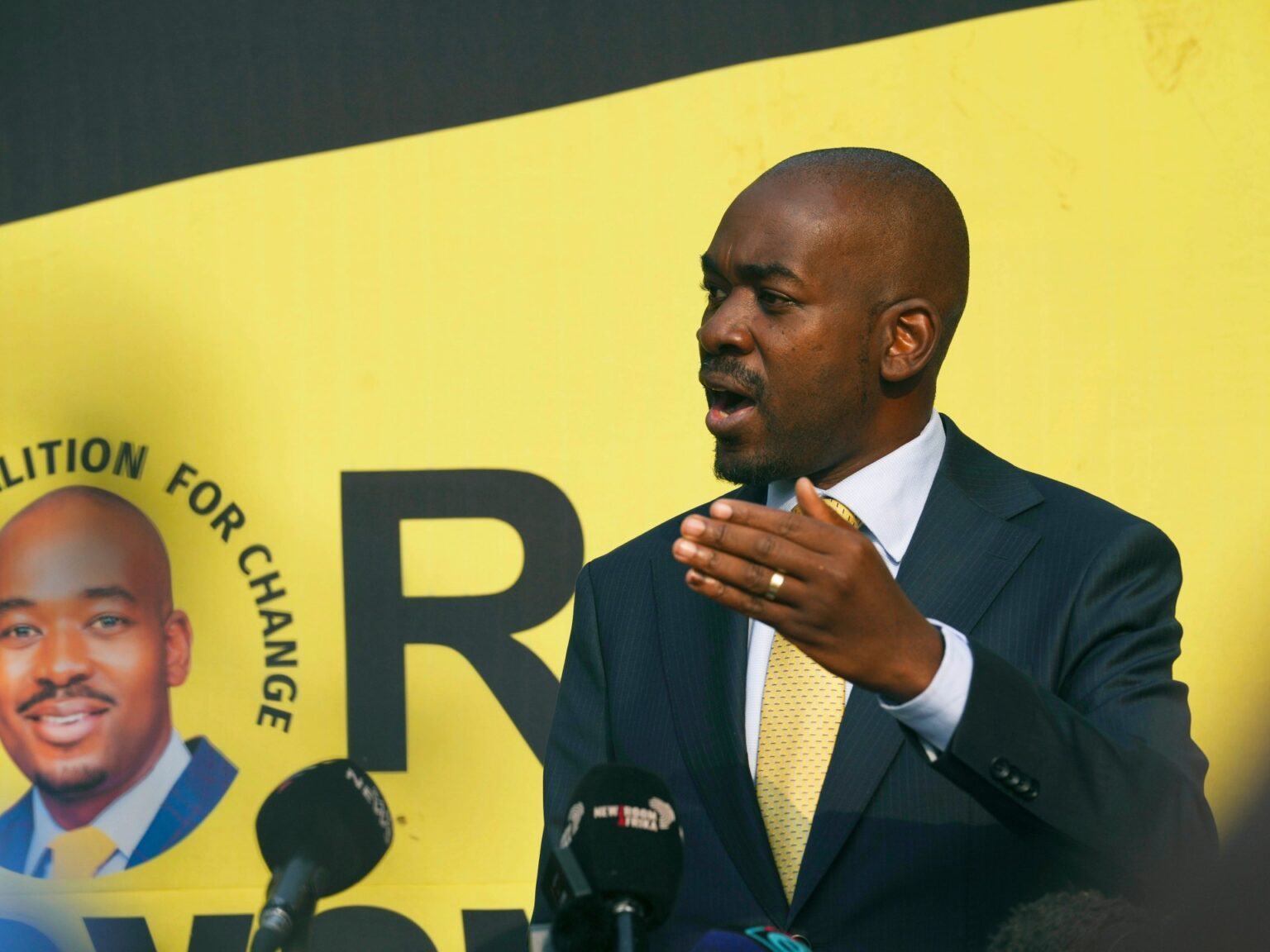Zimbabwe’s main opposition leader has alleged “blatant and gigantic fraud” in the country’s election after President Emmerson Mnangagwa was declared the winner and international observers reported an environment of intimidation against voters.
Late on Saturday, the Zimbabwe Electoral Commission (ZEC) announced Mnangagwa, 80, won a second term with 52.6 percent of the ballots against 44 percent for his main challenger, Nelson Chamisa, 45, of the Citizens Coalition for Change (CCC) party.
The announcement, which came after voting had to be extended because of delays in the printing of ballot papers, was made two days earlier than expected.
Chamisa said the opposition had not ratified the results, which he said had been “hastily assembled without proper verification”.
“They stole your voice and vote but never your hope,” Chamisa wrote in a post on X, formerly known as Twitter, in his first public reaction to the election declaration. “It’s a blatant and gigantic fraud.”
Mnangagwa, 80, speaking from the presidential palace, dismissed the allegations and challenged his accusers to take action.
“I did not conduct these elections. I think those who feel the race was not run properly know where to go to complain,” he said at a news conference on Sunday, expressing great happiness at his victory. He insisted the elections were run “transparently, fairly in broad daylight”.
Zimbabweans went to the polls on Wednesday and Thursday to choose a president and new parliament, in an election seen as a test of support for Mnangagwa’s ZANU-PF party, whose 43-year rule has been accompanied by an economic crisis and deepening authoritarianism.
The United Nations Secretary-General Antonio Guterres voiced concern on Sunday about “the arrest of observers, reports of voter intimidation, threats of violence, harassment and coercion” in the country of 15 million people.
Guterres issued a statement urging all sides to “peacefully settle any disputes through established legal and institutional channels” and resolve disputes “in a fair, expeditious, and transparent manner to ensure that the results are a true reflection of the will of the people”.
In the buildup to the vote, international rights groups reported a crackdown on opposition to Mnangagwa and ZANU-PF, which has been in power since independence and the end of white minority rule in 1980.
“We knew we were going into a flawed election. We have a flawed voters roll, a flawed delimitation report. We had a flawed ballot. It was a flawed electoral environment,” Chamisa, a lawyer and pastor who heads the CCC, told a press conference in the capital Harare. He insisted that the CCC were the winners.
“We have won this election. We are the leaders,” he said.
Grounds for challenge
Election monitors from the European Union, the Commonwealth and the 16-nation Southern African Development Community (SADC) said on Friday that the elections had failed to conform to regional and international standards, listing a number of concerns, including the banning of opposition rallies, issues with the voter registration rolls, biased state media coverage and voter intimidation.
That did not stop Mnangagwa from thanking “various election observation missions who have been witnessing our electoral processes without bias”.
Although he also countered criticism by saying, “we have demonstrated that we are a mature democracy”.
“As a sovereign state, we continue to call on all our guests to respect our national institutions,” he said.

But for political analyst Rejoice Ngwenya: “The CCC has good grounds to go to court and challenge the outcome.”
In the streets of Harare, some people were disillusioned at the outcome.
“The results were no good, there’s something wrong somewhere,” Godwell Gonye told the AFP news agency.
Another man, who asked to remain anonymous, confessed he had not looked closely at the results.
“We accept them for as they are, it’s the decision of the majority and we respect it,” he said.
ZEC chairwoman Justice Chigumba said Mnangagwa secured more than 2.3 million votes and Chamisa more than 1.9 million.
By securing more than half the votes cast, the president avoided a run-off. Voter turnout was 69 percent, the commission said.


